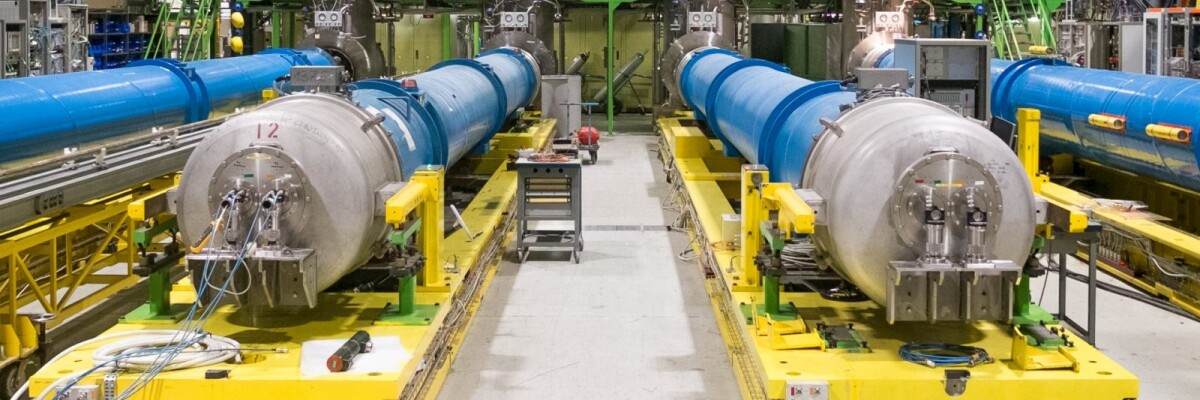The Large Hadron Collider (LHC) is the largest scientific and experimental project involving thousands of scientists and engineers from different countries. During experiments in the vacuum tubes laid in the...
The Large Hadron Collider (LHC) is the largest scientific and experimental project involving thousands of scientists and engineers from different countries.
During experiments in the vacuum tubes laid in the 27-kilometer underground tunnel, two proton beams are accelerated to high speeds and then collide. Using special detectors, the physicists register particles generated by collision of individual protons. This information enables to better analyse organisation of matter and the principles of the universe arrangement as a whole.
The accelerated particles have enormous energy that can destroy expensive LHC equipment on direct contact. Thousands of various-design magnets accelerate proton beams and then stabilize their trajectories in the tubes.
In order to prevent potential accidents, engineers regularly check all equipment at the collider. Maintenance takes about five months a year.
This year, all experiments at the LHC will be suspended for two years for a large-scale upgrade. The scientists aim to create a High Luminosity Hadron Collider (LHC). By increased luminosity, scientists mean a more efficient system of collision and detection of particles. In the collider’s new version a proton beam will be significantly compacted, which will increase the probability of collision between two separate protons. When the beams collide, there will be much more "debris" and researchers, using detectors, will be able to register higher luminosity. The collider’s new version will allow to collect statistics much faster, and scientists will be able to make new landmark discoveries in physics.
In December, the collider staff will test the electronics and the magnets, and then eventually turn off the accelerator for two years.
During modernization, the engineers will install more powerful magnets, new cryogenic equipment and ventilation systems, improve the power supply system, as well as make additional technological voids and tunnels to facilitate maintenance and increase the collider’s working time.
The collider’s modernization will take until 2021. The next period of operation (with double luminosity) will last three years. Then the accelerator will be stopped for another 2.5 years for a final conversion to HL-LHC, whose luminosity will be 6-7 times higher.
Share this with your friends!






Be the first to comment
Please log in to comment